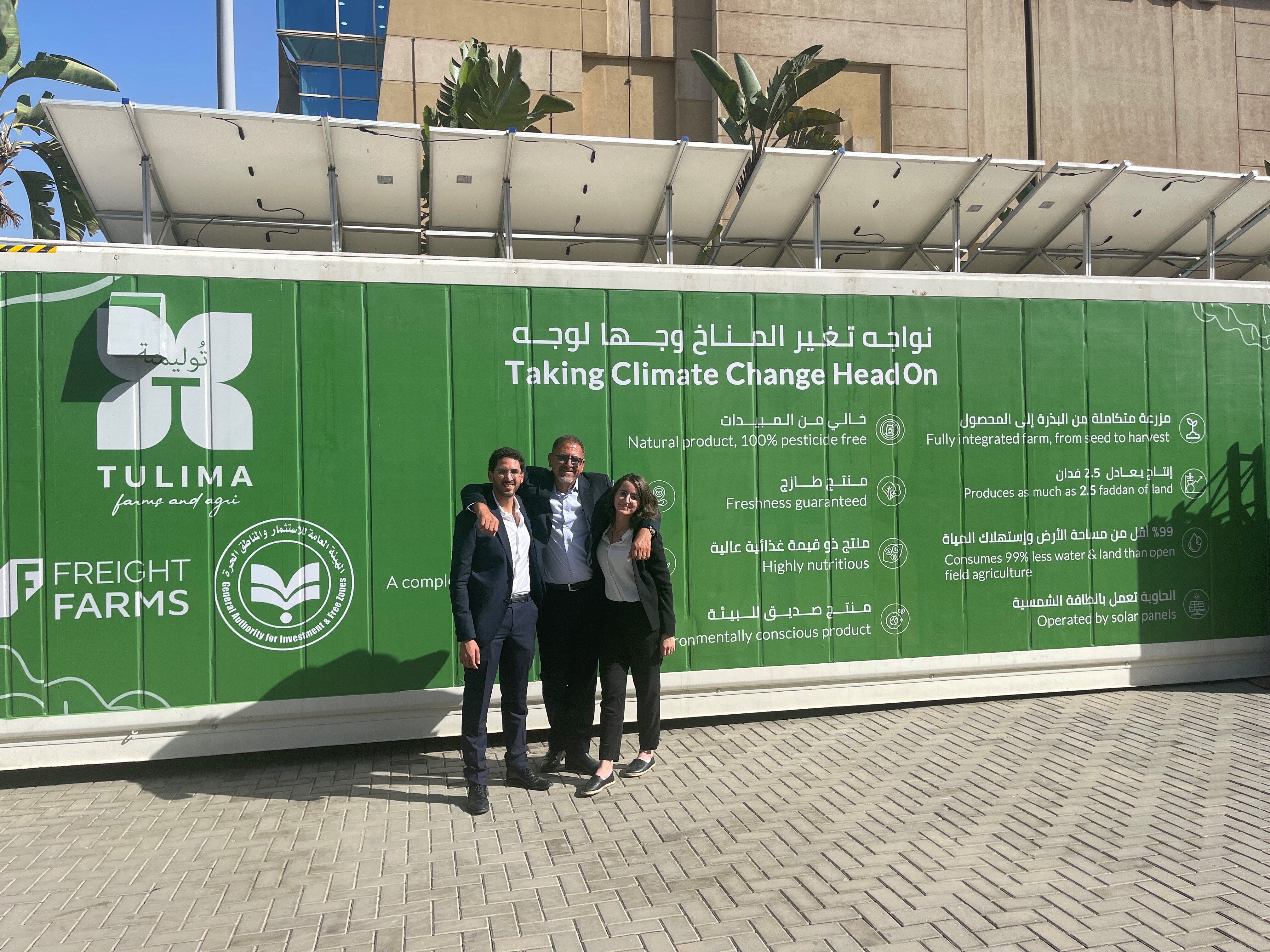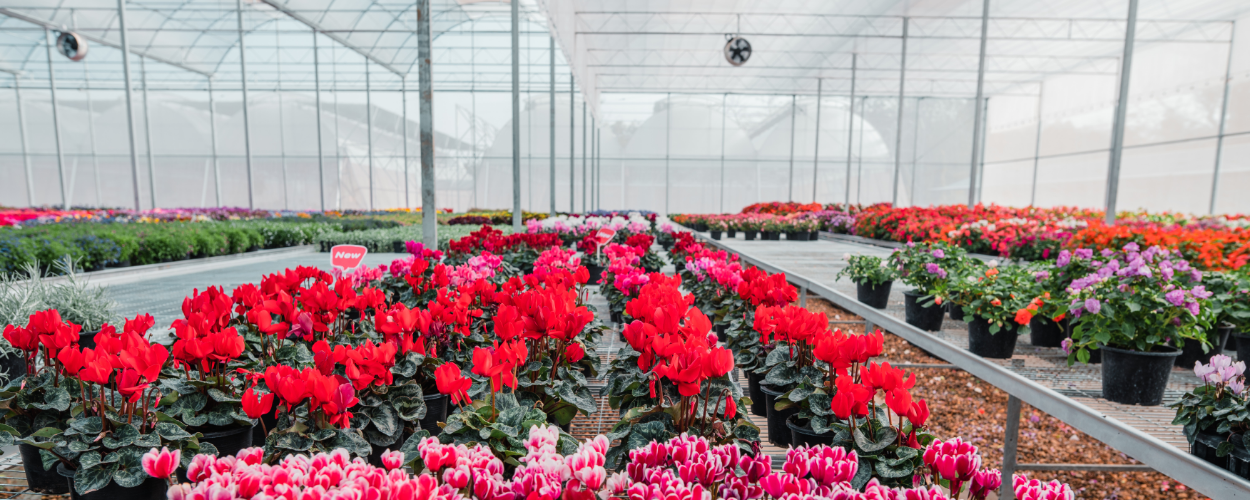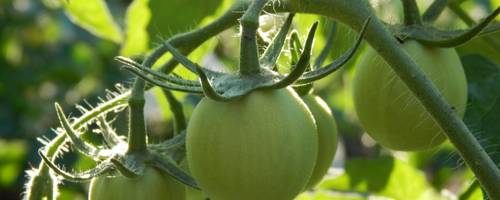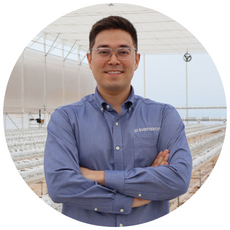
Growing 120 crops in a high-tech oasis on the Cairo Alex Desert Road
/EMEA/NL/Hugo%20-%20Meet%20the%20expert.png)
Imagine a place where in summer a plastic greenhouse without climate control will reach 70 °C in just one hour.
And then imagine that your goal is to grow not just a monocrop, or a handful of consumer staples, but an entire market garden of more than 120 varieties.
Half of your 20-acre plot is given over to open fields, but 2.5 hectares is a dense poly-culture. Your offer ranges from carrots, parsnips, potatoes, spinach, arugula, basil and snack peppers, to 30 varieties of tomatoes.
I was scratching my head about Tulima Farms. As far as I can see there just aren’t a lot of similar projects in the world right now. Projects where this kind of varied offer exists alongside ambitions like pesticide-free growing and becoming climate positive.
Seif Salama, an energetic entrepreneur with a business rather than growing background, is the force behind Tulima Farms.
I was fortunate to meet him early on in the project and Nelson, our Climate Consultant in Almeria, Spain, and I have been the contact point for Seif at Svensson.
He was very clear from the outset that Tulima would purchase advanced screens. He wanted to reduce "sun scolding" and get better control of indoor temperatures. He told me he’d heard the name Svensson at every turn as he was intensively planning the project.
And what an ambitious and visionary project it is. I don’t think it’s going to far to say it has the potential to change the way that growers approach their markets in the hottest, dryest regions of the world.
And perhaps it required a newcomer’s fresh perspective, because the conventional way of doing things is certainly set to one side at Tulima Farms, as its co-founder explained to me.
"I studied management at Lancaster University in the UK and then took a job in operations at Rolls Royce," says Seif. "My father owned the plot and there was a traditional farm on it here, about 90 minutes from Egypt’s capital, Cairo. We discussed what we could do with it and I decided to make the leap, quit my job in the UK, and start the business."
Ready for a dramatically changing climate
"We set out to do something very different and innovative. Starting at the end of 2020, we created a one-stop shop where in 2.5 hectares we grow in 32 individually controlled compartments of around 420 to 480 square meters each," Seif explains.
"We grow 120 to 190 separate varieties all year round, and this means we can cut out the middle man and make a broad, premium offer to hotels, restaurants and high-tier chefs."
"Since we saw so many failure points in the cold chain of the local retailers, we have taken control of that as well, and we supply direct to consumers in Cairo. We have deliveries seven days a week."

120 crops: Some of the varied produce grown in the many climate compartments at Tulima Farms, and one of the 30 varieties of tomatoes.
Seif says that although it is still early days for the project, they’ve already come a long way.
"I feel like we’re about 60% towards the yield we want and I would say about two years from break-even on the capital investment we have made in the project."
"Growing-wise, it’s a full time job to master the technology and crop knowledge for us all, but we’ve decided from the outset not to rely on crop consultants because they come with their way of growing and this climate is hot in a way they aren’t used to."
Steep learning curve during first 18 months
Seif tells me that there have been many learnings in these few years. For example, balancing what the farm can grow with the market he’s been able to develop in the region, so that he’s not disposing of unwanted product.
He’s also been a full-time student of fertigation – large parts of Tulima Farms are under hydroponic and vertical cultivation. And, not satisfied to push the envelope of what’s possible in a polycarbonate tunnel greenhouse operation, Seif has developed a stand-alone business that enables hotels to install a growing container for the production of year-round leafy greens on their own site.
Seif: "I was head grower here until a few months ago, when I passed on the baton to my father. It was he who inherited the old farm."
"In Egypt you can barely support a family or even a person with 20 acres of land. We began by thinking about Egypt’s position."
"We saw that very soon Egypt will be affected by global warming and climate change. It will be threatened by variations in our usual growing seasons. Water will only be more and more important."
"Here farming is very traditional. It is steered by dates not by data. So if Alfalfa goes in on 15 April, that’s when it goes in, irrespective of the weather."
"So our starting point was to cut out all the risk factors, cut out pesticides, reduce reliance on labor, and strive for a level of productivity that is almost unheard of by Egyptian standards," he says.
Tomatoes the Egyptian way
Although Tulima Farms makes its partnerships with Dutch and western technologists a pillar of the business, it has opted to develop its own crop expertise and to run the facility almost like a research center, says Seif.
"The main advice we had from a tomato crop consultant was to grow very high plants. That works in Netherlands, but if I do that here, I will have the bottom of the tomato in 26 °C and the top of the plan in 40 °C. The tunnels are 6m high at the highest point and 2.4 meters high at the sides."
"So we don’t do things that way. We accept that we have a stratified climate in the greenhouse and grow in the low temperature zone of the tunnel. It’s essential to think this way, because cooling is so very expensive compared to heating."
The "unhelpful" advice he received at the outset has become something of an origin story for the way they now train up and develop their own growing talent.
"We prefer to train up people from scratch, not even to take people with experience, because it’s not usually helpful here," says Seif.
"Today, the woman who runs all our tomato production, and literally has millions of pounds she is overseeing, began as a cleaner here. But she was keen and fast to learn and has grown incredibly with us."
The one-stop vision: A kind of Wholefoods Store where the produce has roots
With his particular one-stop vision for the business and his intensive use of technologies such as fertigation, vertical, hydroponic and climate screens, Seif has a vision. It encompasses not just his current business, or the next step of ten hectares they may one day expand into, but looks ahead to Egypt’s and the region’s future.

Co-founders and their greens: Mohamed Salama (center), Seif Salama and Zeina Salama
"In the same way Netherlands had the fertile regions around the Rhine, Egypt had the Nile Delta with a ten kilometer margin of highly fertile soil either side because of flooding. But pressure for housing means that a lot of this land was lost," he explains.
"Now instead, there is a government strategy of reclaiming desert, but it’s extremely cost-ineffective and water dependent. My vision is for a new kind of CEA where we produce ten times the product with a tenth of the water of open fields."
Seif says they have had huge interest in what they are doing at Tulima Farms, particularly from Saudi: "They’re interested in us coming in and replicating exactly what we have here for them, so I think we will see more people thinking the way we do," he says.
A vital layer of shade and a better kind of light
The difference that Svensson screens make at Tulima is critical, according to Seif.
Located in the Beheira governorate of the Nile Delta, this is a seriously hot environment, but one which in winter can also face temperatures of 4 to 6 °C.
In the polycarbonate tunnels, with cooling fans at full operation, a 50 °C summer day will see an indoor environment of 29 to 30 °C without climate screens.
Seif: "With the Harmony screens closed, that temperature falls to about 24 to 25 °C and we also benefit from the diffuse growing light. It’s also helps that with the screens closed, we have less volume of air to cool," he explains.
"It’s been incredibly helpful to have you guys making sure that we’re using the screens in the right way," he tells us. "There is no time that we’ve wanted support and we haven’t received it."
"Added to that in the winter, we are able to conserve the day’s solar energy, which is generally good, to keep the greenhouse warm at night. We close the screens directly at dusk."
The greenhouse also uses insect netting from Svensson in conjunction with the cooling fans that draw air over wet corrugated cardboard. Because the nets constrain the airflow somewhat, the fans are doubled up to provide sufficient cooling in a way that excludes pests.
Lessons for a grower from Rolls Royce
Seif says that at Rolls Royce he learned management and specifically how to manage production and quality.
He was production leader for the final assembly of a component of jet engines and we discuss how some other parts of the aircraft industry have been heavily criticized for poor quality following repeated crashes.
"At Rolls Royce, we simply couldn’t cut corners," he said. "It was not an option and I never saw it," Seif says.
"Here at Tulima Farms we want to offer the highest quality and other benefits like pesticide-free. We’re not afraid of a high price point, but our intensive use of technology is about being able to make this broad, high quality offer much more cost-effectively."
Related articles

Why a perfect spring can threaten the success of your newly planted crop
Mostly we associate humidity problems with the wetness of winter or the heavy moist heat of high summer, but there’s a particular risk to greenhouse../EMEA/NL/Hugo%20-%20Meet%20the%20expert.png)

Temperature up, humidity up, whitefly up: A perfect time to test insect nets in Western Mexico
“It’s 50 degrees in the greenhouse.” We know hot weather in Mexico, but when we hear those words in a phone call from a customer it conjures up a..
